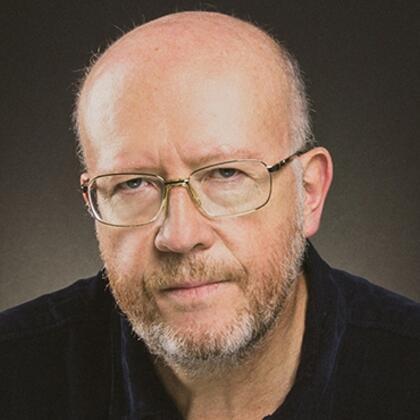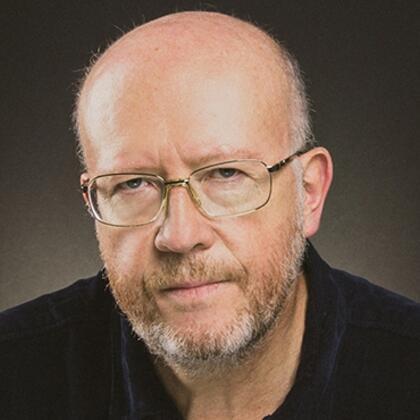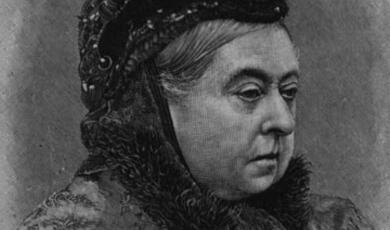Holocaust History Under Siege in Poland
Share
- Details
- Text
- Audio
- Downloads
- Extra Reading
For the second Annual Alfred Wiener Holocaust Memorial Lecture, Professor Jan Grabowski will discuss how scholars of the Holocaust find themselves confronted with the hostile reactions of various states pursuing the policies of Holocaust distortion. This situation has acquired particular importance and urgency in Poland, where the authorities have introduced a series of measures intended to freeze academic debate, hinder independent research and intimidate scholars whose writings are perceived as opposed to the official, state-approved historical narrative.
This lecture is presented in partnership with the Holocaust and Genocide Research Partnership between The Wiener Holocaust Library and the Holocaust Research Institute, Royal Holloway.
Download Text
It will come as no surprise that my focus will be on Poland. Not because Poland is the worst offender in attacking the memory of the Holocaust - although Polish national narrative scores high in this competition - but because in the course of last decades I have been most often exposed to the various representations and demonstrations of this particular brand of historical revisionism. Through the lens of Polish memory battles one can make an attempt to track, to analyze and to reflect upon the main threats and challenges facing Holocaust research, education and commemoration now and in the future.
The Polish general elections of 2015 brought to power a right-wing, nationalistic party called PiS (the acronym in Polish stands for Prawo i Sprawiedliwość, or Law & Justice), an ironic name for a party obsessed with destroying the foundations of independent judiciary. Since then, the nationalists have been busy dismantling the fundamental components of the democratic system, appropriating the entire machinery of the state, attacking independent judges and journalists. However, their obsession with the defense of the so-called “good name of the nation” made history one of the most internationally visible areas of confrontation. And Holocaust studies, Holocaust research and Holocaust education quickly found themselves at the very heart of this struggle over the past.
Pure and undiluted, Holocaust denial is today very much a fringe phenomenon. However disturbing and appalling it might be, simple denying the factuality of extermination of European Jews by the Nazis banishes its disciples (and denial of the Shoah may be likened to a bizarre cult) to a reservation which is visited by few and respected by none. Unfortunately, much more insidious, dangerous and popular are the more recent forms of Holocaust denial, known as the distortion of the Holocaust. More specifically, the Holocaust deflection and Holocaust de-Judaisation. According to one definition coined by Manfred Gerstenfeld: “Holocaust deflection entails admitting that the Holocaust happened while denying the complicity or various types of participation of countries, specific groups or individuals, despite ample evidence to the contrary. Major examples of deflection occur in those countries where, during the war, Germans were helped by important segments of the local populations in the despoliation, deportation and killing of the Jews”[1]. Efraim Zuroff of the Israeli Wiesenthal Center, expanding on the same issue, mentioned several frequently recurring factors in deflection attempts by Eastern European countries. Their main characteristic is: “the attribution of Holocaust crimes entirely to German and Austrian Nazis (as opposed to locals); the exaggeration of the number of, and scope of, the assistance provided by local Righteous Gentiles; and attempts to claim that the only local participants in Holocaust crimes were criminals or totally peripheral elements of society”.[2]
This, in short, summarizes the Polish problem with the Holocaust: the inability and the lack of will, to recognize the fact that segments of the Polish society (definitely not the criminalized fringe) took part in the German genocidal project. That a hard-suffering society (and no one puts to doubt the enormity of Polish suffering during the war) could, at the same time engage in victimizing another, even more fragile and helpless group. That uncounted thousands of Poles took part in the robbery of their Jewish co-citizens, that they took part in the brutal liquidations of the ghettos and that they were involved in hunting down the Jews who managed to flee the ghettos. For the Polish society, steeped in its tragic history and brought up with a series of historical narratives all of which defend the myth of own national innocence, coming to terms with the tragic legacy of the Holocaust, is a daunting, if not an impossible challenge.
This need to create- to quote Yehuda Bauer’s expression - a “useable past”, or to “tame” the history of the Holocaust, give birth to a state-sponsored and state-enforced official interpretation of the national past. The cornerstone of this policy is the relentless pursuit of the myth of the universality of the “rescue phenomenon”. In short, it is an attempt to argue that - despite horrible German terror - the default position of the Polish society under the occupation was to rescue the Jews. That the rare individuals who harmed the Jews, were outcasts and a criminal fringe. In political and quasi-academic narrative one can often hear today that “hundreds of thousands, or millions of Poles saved the Jews”. Things went so far, that Poland’s Prime Minister in a speech given in 2019 actually said: “Today we build great, bright houses, a great and shining Poland on the foundation of memory of millions of Poles who suffered and who rescued Jews during the cruel night of German occupation”[3].
And if independent historians want to put to question the existence of “millions of Poles who rescued Jews”, or who otherwise dare to challenge the myth of national Polish innocence, then there are consequences. Legal consequences.
In January 2018, the Polish parliament voted the so-called “Polish Holocaust Law” (precise translation would be: “Changes to the Law Regarding the Institute of National Remembrance”) which, among many other things, threatened those who “slandered the good name of the Polish nation” and who “blamed the Polish society for crimes committed by the Nazi III Reich” with prison terms of up to three years. The bill, correctly perceived as a threat to further study of the Holocaust and an assault on the memory of one of the greatest crimes in human history, raised protests around the world. On June 27, 2018, retreating in the face of international indignation, the Polish government withdrew the criminal provisions of the bill. Mateusz Morawiecki, the Polish PM, said in the parliament: “Those, who claim that the Polish nation, or the Polish state, bear responsibility for the crimes of WW II, should - of course - be in prison. But we have to act bearing in mind international realities and this is why we take them into account”. Morawiecki assured the parliament, however, that the Polish state still had enough tools at its disposal to inflict pain on the offenders - mostly by the means of civil litigation. The new bill made it easier for NGOs to take legal civil action against “slanderers of the good name of the Polish nation”, and lawsuits could henceforth be filed free of court fees. Indeed, this scenario, or plan of action against Polish historians, was soon to be tested in Polish courts.
At the same time Morawiecki met with the Israeli PM Benjamin Netanyahu and both issued a joint declaration which put an end to the rift between the two countries which started five months earlier, with the proclamation of the Polish Holocaust Law. In a curious turn of events, the joint declaration placed on equal footing the phenomenon of antisemitism and that of antipolonism. While antisemitism is one of the oldest (if not the oldest) kind of prejudice known to man, antipolonism is a curious phenomenon, which exists mostly in the heads of the Polish nationalists. It is based upon conviction that there are mysterious forces at play which want to undermine the Polish national community, to threaten the raison d’état of the Polish state and, generally speaking, to slander the good name of the Polish nation. It is, as one can guess, a poppycock, or simple nonsense, and the fact that the Israeli Prime Minister recognized antipolonism as equivalent of an ideology which resulted in deaths of six million people during the Holocaust, is a testimony to the desperation of Israeli politicians looking for friends. Any friends, anywhere.
Night Without End
It was at that time, in 2018, when “Night Without End”, a two volume, 1,700 page-long study written by nine scholars (full disclosure: I am the editor and co-author of the book) has been published in Poland (Polish title: “Dalej jest noc”)[4]. The book reached the bookstores right in the middle of the international scandal triggered by the Polish Holocaust Law. The study, a result of six-year long research project presented Jewish survival strategies in nine selected counties of occupied Poland. The authors looked at the entire 1939-1945 period, but our primary focus was the period of liquidations of the ghettos and everything that happened later. What our studies and research demonstrated was the heretofore unknown, or little-known, role of the Polish actors, including the masses of local people, who took part in the plunder and in the killing of their Jewish neighbours. “Night Without End” also traced individual trajectories of thousands of “hidden” Jews. Our conclusions were sombre: vast majority of Jews in hiding died wither with direct (murder) or indirect (denunciation) involvement of local non-Jewish population.
The Institute of National Remembrance
From the perspective of the radicalized Polish state, our findings were, as we soon found out, unacceptable and triggered an angry response. The Institute of National Remembrance (IPN) - an official watchdog of the state narrative in matters of history - despatched against us a contingent of its employees who produced series of pamphlets (masquerading for reviews) which later were published by the IPN in several languages. The pamphlets had two things in common: they were based on bad will and historical ignorance, and their clear intent was not to advance the academic debate, but to destroy the reputations of all nine authors of the book. First, however, a few words about the IPN are in order. Initially, the mandate of the institution, created twenty years ago, was to look at the 20th -century crimes committed “against the Polish nation” and to prosecute people involved with the communist system of power, from the 1944-1989 period. With time, the mandate has been expanded, and included the care of enormous archival holdings and a very broad spectrum of educational activities beefed up with a massive research portfolio. The IPN soon went on a shopping spree, hiring hundreds of professional historians and becoming, over the years, the largest “producer” of historiography in Poland. Nowadays, the IPN, weaponized by the Polish state with a yearly budget of 100 million euros, has become the major player on the “memorial” field, worldwide. It has also become a clear and present threat to the memory of the Holocaust and to the historiography of the Holocaust.
Since its inception in 1998, the IPN had a distinctively right-wing tilt (“defending the good name of the nation”) and, not surprisingly, it has become a refuge for nationalists of various hues. It raised few eyebrows, therefore, when Jarosław Szarek, the head of the IPN declared, in 2016, that Germans, and not Poles, were responsible for mass-murder of the Jews in Jedwabne, in 1941[5]. Few were surprised when Dr. Panfil, the chief of IPN’s Lublin Bureau of Public Education, declared in 2017 that “Jews did not have it all that bad in the beginning of the German occupation in Poland” and that the “Jewish Councils were a form of Jewish self-government”[6]. This ideological evolution of the IPN has recently reached its logical conclusion with the appointment of Dr. Tomasz Greniuch as the chief of IPN’s large branch in Wrocław. Dr. Greniuch is a former neo-Nazi, publicly (and frequently) lifting his right arm in a Nazi salute (also known as Hitlergruß, or “Hitler greeting”) and an admirer of Belgian Nazi, Leon Degrelle.
IPN is not the only state institution deployed by the Polish authorities to confront books, people and ideas which are thought to threaten the national myths, legends, half truths and simple lies which found themselves at the core of the national identity project energetically promoted today by the Polish nationalists. There is the Pilecki Institute, which might be called IPN-light, a smaller outfit (active not only in Poland but also abroad, with a German branch opened in Berlin, with another one scheduled to open soon in New York) which works hand in hand with the IPN, attacking independent historians and erecting across Poland monuments to celebrate Poles who rescued the Jews during the Holocaust. There are various NGOs, generously subsidized by Polish taxpayers with direct links to the Polish government. Their names, if the situation were not serious, would sound burlesque-like: “The Institute to Combat Anti-Polonism Verba Veritatis”, or “The Redoubt of Defence of the Good Name of the Polish Nation”. In order to pursue its mission, the “Institute to Combat Antipolonism” received a generous subsidy from the Ministry of Justice. Its mission included reporting journalists who were thought to have “slandered the good name of the nation” to the authorities.
The Lawsuit
While the “Institute to Combat Antipolonism” chose to inform the authorities and to trigger a criminal investigations, the “Redoubt of Defence of the Good Name of the Polish Nation”, opted for civil litigation - exactly as announced earlier by Prime Minister Morawiecki. In May 2019 I (and the other authors of “Night Without End”) became aware of a lawsuit being filed against me and Prof. Barbara Engelking from the Polish Academy of Sciences, in the Warsaw District Court. The lawsuit has been filed by an elderly woman from a remote village in eastern Poland. She claimed that we had slandered the memory of her long-deceased uncle and she asked for very high damages and apologies. In her lawsuit, she wrote that her uncle was not guilty - as Prof. Engelking was alleged to have written in her chapter - of delivering a group of twenty-two Jews to the Germans for execution. Malinowski, as the lawsuit alleged, was not only declared not guilty in 1950 by the Polish court, but there was strong evidence that he had actually helped the Jews. The lawsuit targeted me, as the co-editor of the study and Prof. Barbara Engelking, as the author of the incriminated two paragraphs.
There was much more to the case, however, than met the eye. Anyone can file a lawsuit, but not all of us can enjoy the encouragement, support, lawyers, researchers and the financial resources of a GONGO (Government-organized NGO) aligned with the Polish state. Reduta, the GONGO which stood, as we soon have learned, behind the lawsuit, has received an equivalent of a few hundred thousand dollars from the Polish government to “pursue its mandate”[7]. The chief of Reduta was, at the same time, the chief of the Polish Press Agency (PAP) and several ministers of the Polish government were directly involved with this organization. According to Reduta’s chief, they was looking for a “smoking gun”. With the help of researchers, they identified two paragraphs (less than one page) in 1,700 page study where they thought they had a case, they checked the archival evidence, they went looking for the relatives of the village elder who could file a lawsuit and the rest is, as they say, history.
In addition to requests for damages and apologies, the lawsuit included much more disturbing elements. The plaintiff (read: “Reduta”) asked the court to rule that we had “slandered the Polish nation on purpose and in a premeditated way”. Even more troubling was the inclusion of terms such as the “right to national identity” and the “right to national dignity”, which the lawsuit wanted to be recognized at par with personal goods, such as right to one’s own honour and reputation[8]. According to the Polish civil procedure, the list of “personal goods” which can enjoy legal protection can be expanded in response to the accumulating jurisprudence. The GONGOS, which serve as proxies for the Polish authorities, have already had some successes in getting courts to recognize these vague and legally undefined concepts (who finally knows what “national dignity” means?). Our case was clearly meant as an important next step in this direction, an attempt to allow any member of the “Polish national community” to initiate legal action whenever any other Pole had been - as one would argue - slandered. The scenario, publicly announced by PM Morawiecki in June 2018 was now being put to test.
The Sources
The historical discussion surrounding village mayor revolved around two kinds of historical evidence. The first one was the 1950 court file from Poland. The village mayor was first denounced by a group of villagers as the person responsible for surrendering a large of Jews in hiding to the Germans, for execution. Initially, during the investigation, many witnesses blamed Malinowski. Later, in court, during the trial, they changed their depositions, clearing the accused of all blame. Other documents confirmed that the village community came together in the defence of Malinowski, and some witnesses were badly beaten up by the anti-communist partisans, still active in the area. A medic who tended to them had even been killed. Importantly, there was also a Jewish survivor, Estera Siemiatycka, who showed up in court and testified in defence of village elder Malinowski. She told the court that the elder helped her to go to Germany as a forced labourer. For Jews in hiding, going to Germany was seen as a ticket of life. The Germans, unlike the Poles, were unable to tell a Jew from non-Jew and therefore the chances of survival for Polish Jews were much better in Germany. In the end, the court cleared Edward Malinowski of all blame and set him free.
Many years later Estera Siemiatycka left Poland and settled down in Sweden. Once in the west, she gave a long and detailed testimony to the Shoah Foundation. In her account, she described that Edward Malinowski sent her to Germany, but he also robbed her and denounced twenty-two Jews to the Germans. She also admitted to having given, in 1950, a false testimony to the Polish court.
In her chapter, Prof. Engelking chose to put her trust in Siematycka’s oral testimony, one she found more credible, and one given in the absence of any external pressures. In fact, she did not even try to settle the issue of Malinowski’s guilt, or innocence - she simply quoted the opinion expressed by Estera Siemiatycka in her later account. In my long career of a professional historian, I have read hundreds of court cases from Poland, similar to the case of village elder Edward Malinowski. The scholars of the Holocaust call them “August files”, with reference to the Decree of 31 August 1944, promulgated by the Polish Committee of National Liberation, concerning the punishment of “fascist-hitlerite criminals” and “traitors to the Polish nation” In some cases these “traitors to the Polish nation” included Poles who, for a variety of reasons, harmed their Jewish co-citizens. These trials, pursued without enthusiasm by the authorities, had their own dynamic, as one could see in the case of village elder Malinowski. During the investigation, people talked. Later, in court, once peer and community pressure set in, they changed their story. The pressure was particularly strong whenever a Jewish witness appeared in court. Postwar Poland was not a safe place for Jews, survivors of the Holocaust. Many have been murdered in planned or unplanned acts of violence, which culminated in the bloody Kielce pogrom of July 1946 which claimed lives of forty-nine Jews. In the aftermath of the Kielce pogrom, most of the Jewish survivors fled from Poland. Those who stayed, made a conscious choice, they wanted to blend in with the mainstream society - and the last thing which they wanted to do was to testify against Poles accused murdering or denouncing other Jews during the war. Historians of the Holocaust know, therefore, how to read these Jewish depositions; what can and what cannot be found in them.
Finally, the value which we attach to the Jewish testimony (especially to accounts made outside of court) is linked to its scarcity. It has to be stressed that out of 3,000,000 Polish Jews who found themselves under the German occupation (and I exclude here the 300,000 who have fled to the Soviet Union and never encountered the Nazis) around 30,000, or 1%, lived to see the liberation.
The Verdict
On February 14th, 2021, after a long trial during which we even brought to Poland two sons of Estera Siemiatycka (one lives in Sweden, the other one, in Australia) so they could testify about the poor opinion their mother had of village elder Malinowski, the court announced the sentence. On the more positive side, the judge rejected the plaintiffs’ request for financial damages, and she also rejected the notion that we had “a pre-planned design to slander the Polish nation”. On the other hand, the judge ruled that we had to apologize to Ms. Leszczyńska for “providing inaccurate information” that her late uncle, Edward Malinowski, robbed a Jewish woman during the war and contributed to the death of Jews hiding in a forest in Malinowo in 1943. We were also ordered to apologize for “violating his honor”. The judge declared that when faced with two contradictory testimonies (Polish court files of 1950 and Estera Siemiatycka’s later testimony) a historian has no right to formulate a hypothesis which would put to doubt the reputation of an individual. The judge also made reference to the changing nature of the Jewish testimony - something that has often been raised in court by the lawyers of the plaintiff.[9]
This was, by far, the most dangerous attack on the credibility of Jewish survivors’ testimony so far. In practical terms, the verdict of the Warsaw Court would have prevented historians from treating the survivors’ testimony as a credible source, as long as there were any official Polish sources which offered a different interpretation of the vast events. Historians of the Holocaust often discuss the issue of the future of Jewish testimony: what will happen once the generation of survivors passes away? In the Warsaw courtroom I heard an answer to that question, and it made me fear that history and historians of the Shoah were facing a threat more dangerous than ever before.
There was, however, even more to the verdict. In the written justification of the sentence, judge Jonczyk wrote: “In the light of the above presented ideas and jurisprudence, we can assume that ascribing to Poles the crimes of the Holocaust committed by the III Reich can be construed as hurtful and striking at the feeling of identity and of national pride. The unprecedented historical events, which constitute the legacy of the community and of its individual members and which are considered as factual beyond any discussion, cannot be made relative, because it risks striking against the feeling of national belonging and provokes feeling of harm. This forms among the public opinion a drastically untrue image of Poland and ascribes to Poles characteristics which tear away their dignity and undermine their sense of own value. To blame Poles for the Holocaust, for the killing of Jews during WW II and for seizing their property, touches upon the sphere of the national legacy (dziedzictwa narodowego) and, consequently, as completely untrue and hurtful, can impact one’s feeling of own national dignity, destroying the justified - based on facts - conviction, that Poland was the victim of war operations initiated and conducted by the Germans....”[10].
This was, from what I know, the most complete judicial, legal defence of distortion of the history of the Holocaust so far. The Polish court forcefully explained to historians what has really happened during the Holocaust - or rather, what had not happened. All this in defence of the good name of the nation.
Conclusion
In the months which followed, we appealed the verdict and, last August, the Warsaw Court of Appeals, rejected the decision of the lower court and cleared us of any guilt. Although exonerated, I feel little relief. The nationalistic authorities were furious, and Mr. Zbigniew Ziobro, the Polish minister of justice, shared his thoughts on the social media: “According to the Appellate Court the authors of the book “Night Without End” are academics, so they can lie without punishment. They can transform a hero into a criminal, and a Pole who helped the Jews into someone who was co-responsible for their deaths. It not only brings shame to the court, it is a judicial coup d’état against justice itself”. The vitriolic and hateful language flooded pro-government press, radio and TV.
A small battle has been won but the war is not over. The authorities want to see the decision of the Appellate Court set aside. We should not delude ourselves - independent historians of the Shoah continue to face today, in Poland, the full might and wrath of the state. Defending the myths of national innocence is one of the foundational aspects of the ruling nationalists’ world view, and one of the issues which mobilize their electorate. There is no doubt that this ruling will attract official attention outside of Poland. There are many authoritarian or hybrid regimes which would like nothing more than to rewrite their national history to their own liking. The history of the Holocaust is the most conspicuous case, but obviously not the only one. The “Polish road” can offer an easy solution to their dilemma: how to stop independent research, how to muzzle critical historians, without introducing criminal legislation. Threatening historians, educators and teachers with prison terms can backfire, and raise international protests - as the Polish authorities learned to their chagrin back in 2018. Civil litigation, conducted with the help of GONGOS acting as proxies for the governments, can become a threat to all of us, professional historians, regardless of our nationality.
©Professor Grabowski 2021
[1] Manfred Gerstenfeld, The Abuse of Holocaust Memory. Distortions and Responses, Jerusalem, 2009, p. 22.
[2] Efraim Zuroff, “Eastern Europe: Anti-Semitism in the Wake of Holocaust-Related Issues,” Jewish Political Studies Review, Vol. 17, Nos. 1–2 (Spring 2005), 72
[3] Speech given on March 25, 2019 in Sadowne. See: https://oko.press/miliony-ratowaly-morawiecki-cudownie-rozmnaza-polakow-ratujacych-zydow/
[4] Dalej jest noc. Losy Zydow w wybranych powiatach okupowanej Polski. [Night Without End. Fate of Jews in selected counties of occupied Poland], 2 vols. 1798 p. (Jan Grabowski and Barbara Engelking, (eds.)) Warsaw, 2018. Forthcoming in English from Indiana University Press/Yad Vashem – scheduled date of publication, summer 2022.
[5] https://www.wprost.pl/kraj/10015840/przyszly-szef-ipn-o-mordzie-w-jedwabnem-wykonawca-tej-zbrodni-byli-niemcy.html
[6] https://strajk.eu/historyk-z-ipn-hitlerowcy-dali-zydom-samorzady-a-polakom-nie/
[7] https://oko.press/za-pol-miliona-zlotych-bedziem-polakami-absurdy-z-listy-grantow-narodowego-instytutu-wolnosci/
[8] Warsaw District Court, Lawsuit nr. Sygn. akt III C 657/19
[9] Judge Ewa Jonczyk, Justification of the Verdict, February 9, 2021, Sygn. akt III C 657/19
[10] Ibidem.
This event was on Wed, 17 Nov 2021
Support Gresham
Gresham College has offered an outstanding education to the public free of charge for over 400 years. Today, Gresham College plays an important role in fostering a love of learning and a greater understanding of ourselves and the world around us. Your donation will help to widen our reach and to broaden our audience, allowing more people to benefit from a high-quality education from some of the brightest minds.


 Login
Login








